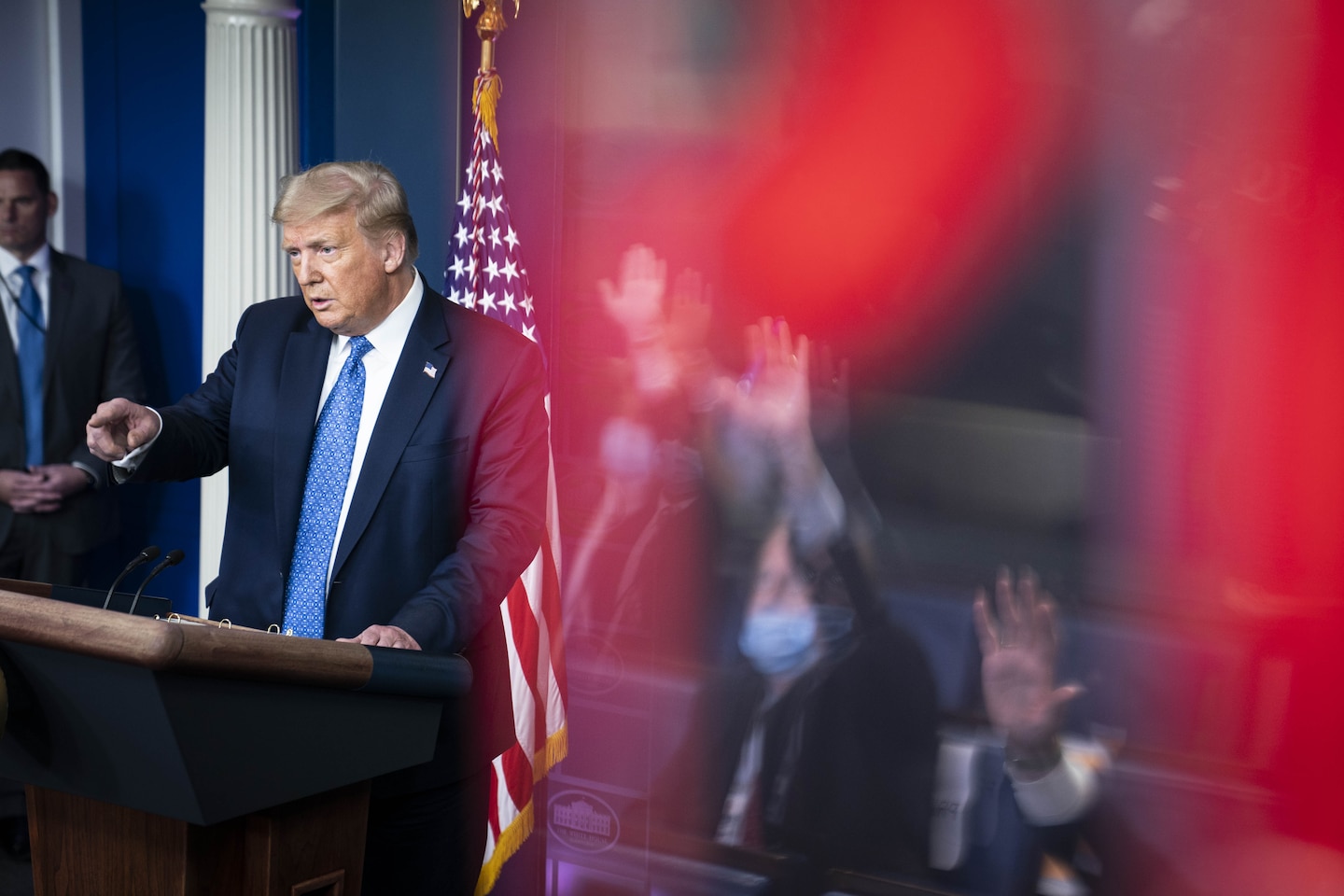4 takeaways from Trump’s Wednesday coronavirus briefing

Here are four takeaways.
1. Trump defended sending federal police into cities
Before we get to the coronavirus, the other big news of the day was Trump’s announcement hours before this briefing to send “hundreds” of federal agents into Democratic-led cities such as Chicago and Albuquerque. A similar, controversial move has injected more chaos into Portland, Ore., and raised questions about whether he’s using these officers in undemocratic ways.
When Trump was pressed on his announcement at the briefing, he didn’t do much to dispel criticism that this is a political calculation. He attacked the Democratic mayor of Chicago, and he described major U.S. cities as crime-ridden: “You have radical left Democrats running cities like Chicago and so many others,” he said. Later: “Chicago should be calling us. And so should Philadelphia and Detroit and others to go in and really help them.”
2. Trump seemed to make a promising vaccine announcement, but there were no health officials there to elaborate
“We think we have a winner there,” Trump said right after coming to the lectern. He said his administration reached an agreement with drug company Pfizer to manufacture and distribute 100 million doses of the vaccine they are working on if it gets approved by the government. The nearly $2 billion deal to expedite a vaccine by the end of the year went public hours earlier Wednesday.
Trump and reporters moved onto other issues, and there were no health officials present at the briefing to elaborate on the likelihood of a vaccine actually being ready in a few months.
When asked why these officials were absent from the stage, Trump said it’s because they are briefing him and then he’s briefing Americans. He said he had talked to Anthony S. Fauci, the nation’s top infectious-disease expert, just before walking into the room.
“They’re giving me all of everything they know as of this point in time,” Trump said of his government’s health experts. “And I’m giving the information to you. And I think it’s probably a very concise way of doing it.”
We argued Tuesday that Trump is not the best person to convey the latest on the virus, given polls show he is among the least-trusted voices in government on it. Yet he remains determined to be the central messenger.
3. He continues to be defensive of his coronavirus response and to sprinkle in politics
Twice in two days, Trump urged Americans to wash their hands and avoid packed bars.
But Trump also praised his border wall for keeping infected Mexicans out. Rather than acknowledging that the United States reached its summer heights in deaths, he characterized fatality rates as declining. Rather than acknowledging slow testing that’s hampered health officials’ ability to track the virus, he put a positive spin on testing numbers. He talked much more optimistically than any top health official would on the possibility of a treatment, which he cast as a more-soothing-sounding “cure”: “That would be great, if we could go into the hospital and just cure people.”
He also declined an opportunity to urge governors who haven’t set up a mask mandate to do so. And he pointed the finger at racial injustice protests for rising cases, which researchers have found no evidence for.
And the president characterized the outbreak in the South and Southwest as “sections of the country that we didn’t anticipate,” despite warnings from health officials, including Fauci, that states in these regions reopening too soon would cause exactly that.
4. He continues to push schools to reopen in the fall
Trump said he’s comfortable sending his son and his grandchildren to school in the fall. That’s significant because Trump actually does have school-aged children in his immediate family who would go back in that situation. (Vice President Pence has grown children but recently said he would feel safe putting them in school.)
Trump also said his administration is looking hard at whether children bring home the virus, and he offered optimistic assessments of public health research on children: “They don’t catch it easily, they don’t bring it home easily, and if they do catch it, they get better fast.”
After Trump spoke, White House coronavirus task force coordinator Deborah Birx was on Fox News, where she said “there’s still open questions” as to children transmitting the virus to adults.
Also telling: When asked about schools, Trump quickly segued into talking about the economy: “We would like to see schools open. We want to see the economy open,” he said.
It’s possible Trump is tying the reopening of schools to the reopening of the economy, a sense of normalcy returning as the clock ticks down to the November election.






